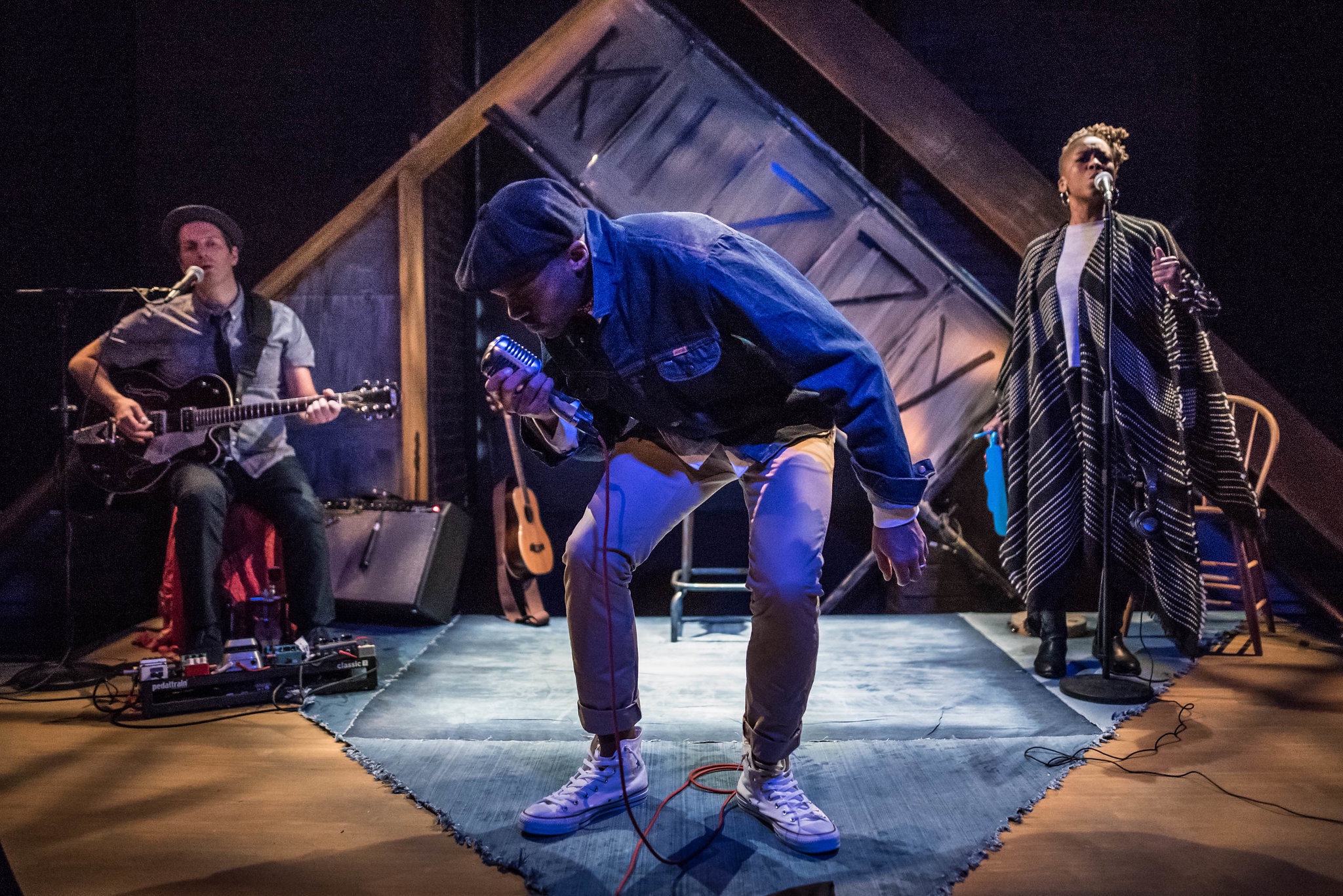The Value of Mythology
When the Facts Fall Short
Have you heard the story of the cherry tree? It tells of George Washington receiving a hatchet as a gift when he was a boy. Shortly after, his father found a gash in one of his beloved cherry trees. George confessed immediately at which his father embraced him, saying his honesty was worth a million trees. This story is famously not true. It’s what folklorist and historian Richard Dorson would call “fakelore.” If a story is not fact, is there value in it—in the retelling, or the practice?
Lately, I’ve been thinking a lot about the tension between fact and mythology and how they can each be a means to discovering and practising truths. This fascination comes up as a parent, as I’m constantly searching for ways to help my four-year-old, Sebastian, make sense of his world. Mythology and make-believe are such a real part of it, and that’s good for his imagination and valuable for his development.
The tension has been pulled into even sharper focus because of Freedom Singer, a piece of documentary theatre I’m producing. The show’s co-creator is Khari Wendell McClelland, a singer-songwriter trying to find connections to his ancestral grandmother, Kizzy, who escaped slavery via the Underground Railroad, likely in the 1850s. Almost no historical details are available to Khari, most likely because Kizzy was not considered worthy of official documentation (or full personhood) in her lifetime. What Khari does have, though, is the oral history passed along through his family.

Khari Wendell McClelland in Freedom Singer. Photo by Dahlia Katz
Still, the information from these stories is very sparse; just a handful of tidbits remain from her entire life. This leaves Khari trying to find a connection to Kizzy through the mythology and fakelore that surrounds the Underground Railroad. As an artist and descendent of a survivor of slavery, Khari grapples with the value of stories and other narratives that are not necessarily true to the facts but are a source of affirmation and inspiration nonetheless. Ultimately, his creative instinct is to research and unearth the music that was sung by fugitive slaves. He has reinvented the songs he found in his own style and performs them in Freedom Singer.
Our documentary theatre aesthetic is used to complicate histories that have been written, by and large, by white men. Poetry, improvisation, and mythology become fair game. As co-creator and director Andrew Kushnir puts it: “In theatre we are trying to pursue the sensation of knowledge. We come to the theatre to experience things that aren’t really there—characters in devised crises—in order to have very real feelings about them. This aligns with what Khari is doing with his music: using its affective power to get us thinking about very real injustices.”
* * *
I grew up with an academic approach to discovering new things. It was always about doing some research, finding the facts. Now, I’m softening to a more inclusive approach that leaves room for interpretation, instinct, inflexion. When Sebastian was born, I would read books and look online to prepare for every milestone of his early development. I have since learned that an arsenal of facts from babycenter.ca is not always better than taking cues from your child and trusting your intuition. In fact, too much of the former can actually interfere with the latter. There is a certain empowerment that comes with closing your eyes and stepping where your heart tells you to step.
In my own life, I have started to walk down paths that are not illuminated by facts or even convention. I won’t lie, I’m taking baby steps of my own. And for the most part, these steps are as simple as allowing myself to believe in the love that surrounds me rather than slipping into skepticism and doubt.
A few days ago my dad came over, and I noticed him scanning the living room, which was not terribly tidy. Having a four-year-old tends to earn me sympathy in this regard, but still I felt self-conscious about the state of my house. Neither of us addressed it. Instead, my dad pointed to my humidifier and asked if I would recommend it. He was thinking about buying a new one. A simple lie. He doesn’t need my help selecting a humidifier. It was a way of expressing his support of me and my home. I made no reference to the kind implication but upheld the lie, gave a report on the silly humidifier I had purchased at Canadian Tire, and silently received his sub-textual approval.
* * *

Khari Wendell McClelland in Freedom Singer. Photo by Dahlia Katz
There is often more to a story than just the facts. And if the facts of a story are debunked, does that necessarily reduce its value? How many parents have used the myth of George Washington and the cherry tree to talk to their children about honesty?
There is still value in the practise of that story, and Khari has found value in the mythology surrounding the Underground Railroad. Some of that is specific fakelore like the quilt code, the notion that fugitive slaves hung quilts at safe houses along the route, which contained coded directions, now widely thought to be untrue. In other cases the mythology is more general, like how Canada accepted these refugees with purely altruistic motives. Even some of the songs Khari has encountered have questionable origins or paint an ideal picture of Canada.
I now embark for yonder shore, sweet land of liberty
The vessel will bear me over and I shall then be free
There is a danger of getting swept up in the feeling and overlooking the facts, but these stories and songs have provided Khari with a way to connect to this ancestral icon. “In my family, the narrative around her is that this is a courageous and strong person who really fought hard for herself and for her children to have a freer existence in this world. I don’t know all the facts, but I do know that it’s been really helpful to me and to my family to have this ancestor who we can feel encouraged and inspired by.”
With stories of the Underground Railroad, facts are not always an option. Most of them have been systematically and unjustly denied to Khari, to other descendants of freedom seekers, to the world-at-large. Khari could choose to see only a dead end, but instead he chooses to engage with myth—with fakelore—sharing these songs he’s found. He can’t know for sure that Kizzy sang any of them, or how direct their link is to her, but in them he has found an inspired alternative to connecting to his ancestor. At a time when myth is being abused and used to promote fear and inspire division, it feels significant to show that mythology can also inspire thought and engagement around a historical injustice—one that continues to affect us today.









Comments